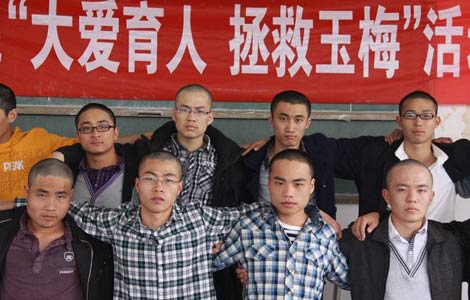 |
|
|
|
|||||||||||
LONDON - Financial institutions are promoting the use of the yuan in cross-border trade and investment settlements as more companies in China and around the world choose to pay and be paid in the currency.
Bank of China, one of the country's largest lenders, held a conference to promote its cross-border yuan services in London on Thursday.
The meeting attracted more than 150 financial experts, including representatives from the Bank of England, the City of London, and the Financial Services Authority, the United Kingdom's banking regulator.
"The stable value of the yuan is making it a new choice for companies as they increase investment activities globally," Chen Siqing, executive vice-president of Bank of China, said at the conference.
Cross-border yuan transactions are increasingly being used for investment, in addition to their more traditional use in trade settlement, Chen said.
He added that as the trade and investment relationship between China and the UK grows, the use of yuan transactions for both trade and investment in London is also set to increase.
"We will continue to provide convenient services to satisfy businesses' need for yuan payments," Chen said.
According to China's central bank, international trade settled in yuan exceeded 2 trillion yuan ($317 billion) and foreign direct investment settled in yuan reached 110 billion yuan last year.
The HSBC also held a similar promotional conference this February.
Qu Hongbin, HSBC's chief economist for China, said at the conference that the pace of yuan internationalization has been faster than expected.
"We expect this trend to continue. Within the next two to three years, we expect the yuan to become one of the top three global currencies to be used in global trade," Qu said.
China introduced a yuan trade settlement scheme in July 2009 in a number of regions and expanded it nationwide in 2011.
China has also approved foreign direct investment in yuan obtained overseas. In 2011, it gave the green light to investing overseas yuan gained by qualified institutional investors in the mainland securities markets.
Cross-border yuan clearance is currently conducted through the Hong Kong and Macao branches of Bank of China, or agency banks of overseas participants.
A recent report from the Society for Worldwide Interbank Financial Telecommunication has shown that yuan liquidity in the UK had the fastest growth last year, apart from the Chinese mainland and Hong Kong.
For yuan payments last year, the UK's global share, excluding the Chinese mainland and Hong Kong, increased from 22.1 percent in the first quarter to 30 percent in the fourth quarter.
In yuan foreign exchange transactions, the UK is already the biggest player, excluding Chinese mainland and Hong Kong, with a share of 46.4 percent.

|

|

|

|

|

|